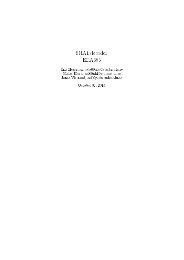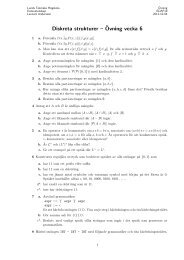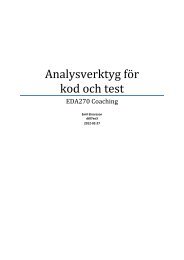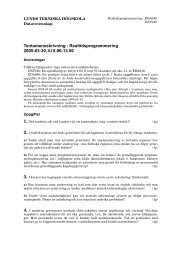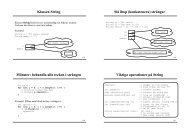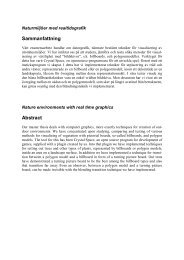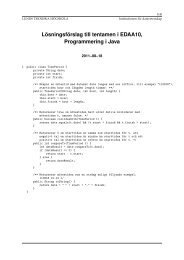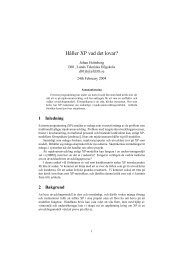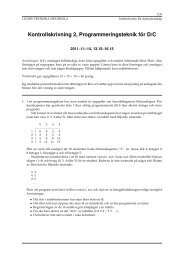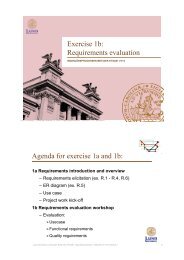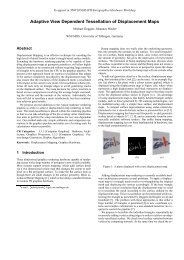Laboratory Exercises, C++ Programming
Laboratory Exercises, C++ Programming
Laboratory Exercises, C++ Programming
Create successful ePaper yourself
Turn your PDF publications into a flip-book with our unique Google optimized e-Paper software.
Strings and Streams 25<br />
• The subscript functions operator[] do not check for a valid index. There are similar at()<br />
functions that do check, and that throw out of range if the index is not valid.<br />
• The substr() member function takes a starting position as its first argument and the number<br />
of characters as the second argument. This is different from the substring() method in<br />
java.lang.String, where the second argument is the end position of the substring.<br />
• There are overloads of most of the functions. You can use C-strings or characters as<br />
parameters instead of strings.<br />
• There is a bewildering variety of member functions for finding strings, C-strings or characters.<br />
They all return npos if the search fails. The functions have the following signature (the<br />
string parameter may also be a C-string or a character):<br />
size_type FIND_VARIANT(const string& s, size_type pos = 0) const;<br />
s is the string to search for, pos is the starting position. (The default value for pos is npos,<br />
not 0, in the functions that search backwards).<br />
The “find variants” are find (find a string, forwards), rfind (find a string, backwards),<br />
find first of and find last of (find one of the characters in a string, forwards or backwards),<br />
find first not of and find last not of (find a character that is not one of the<br />
characters in a string, forwards or backwards).<br />
Example:<br />
void f() {<br />
string s = "accdcde";<br />
int i1 = s.find("cd"); // i1 = 2 (s[2]==’c’ && s[3]==’d’)<br />
int i2 = s.rfind("cd"); // i2 = 4 (s[4]==’c’ && s[5]==’d’)<br />
int i3 = s.find_first_of("cd"); // i3 = 1 (s[1]==’c’)<br />
int i4 = s.find_last_of("cd"); // i4 = 5 (s[5]==’d’)<br />
int i5 = s.find_first_not_of("cd"); // i5 = 0 (s[0]!=’c’ && s[0]!=’d’)<br />
int i6 = s.find_last_not_of("cd"); // i6 = 6 (s[6]!=’c’ && s[6]!=’d’)<br />
}<br />
The global overloaded operator functions are for concatenation (operator+) and for comparison<br />
(operator==, operator



